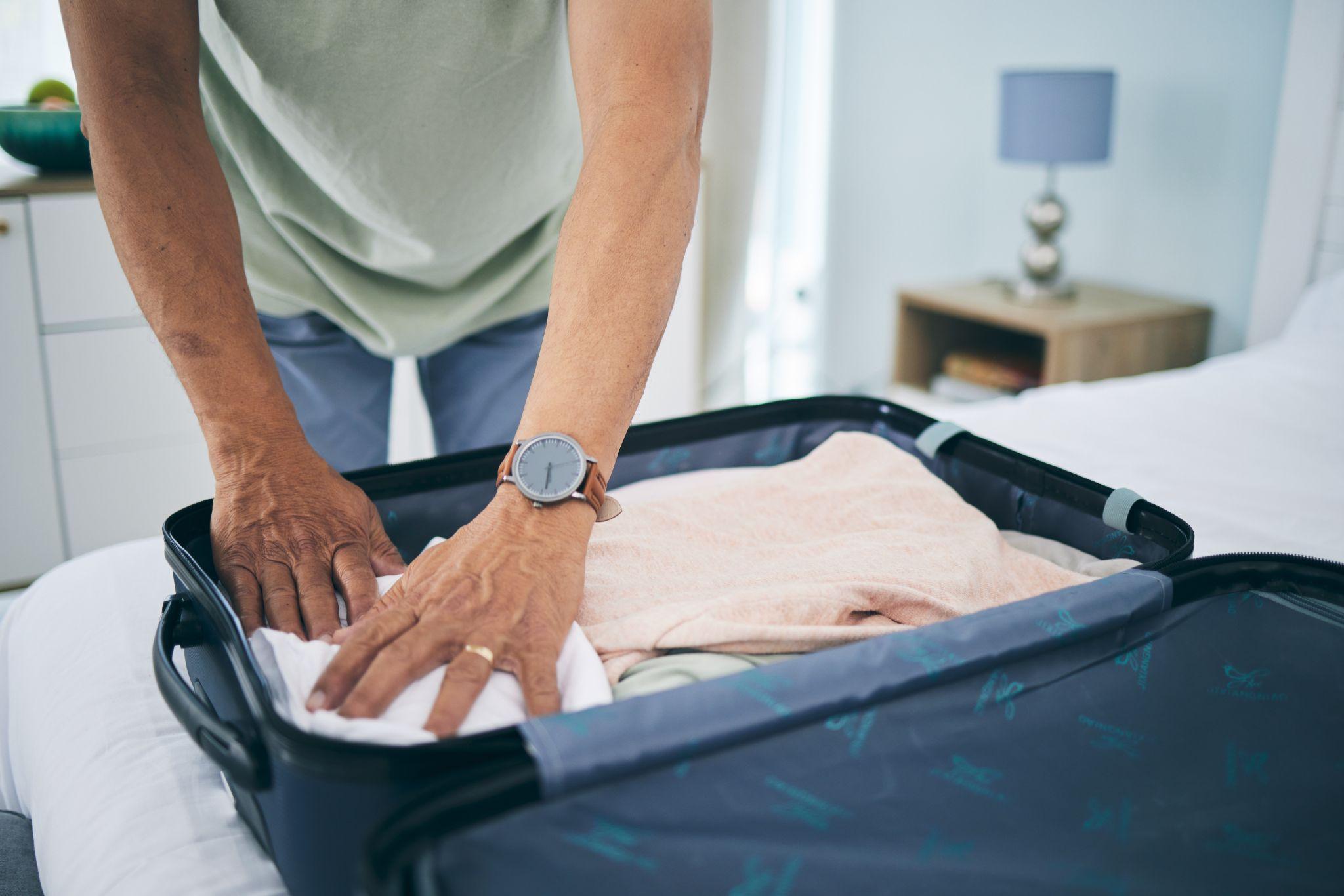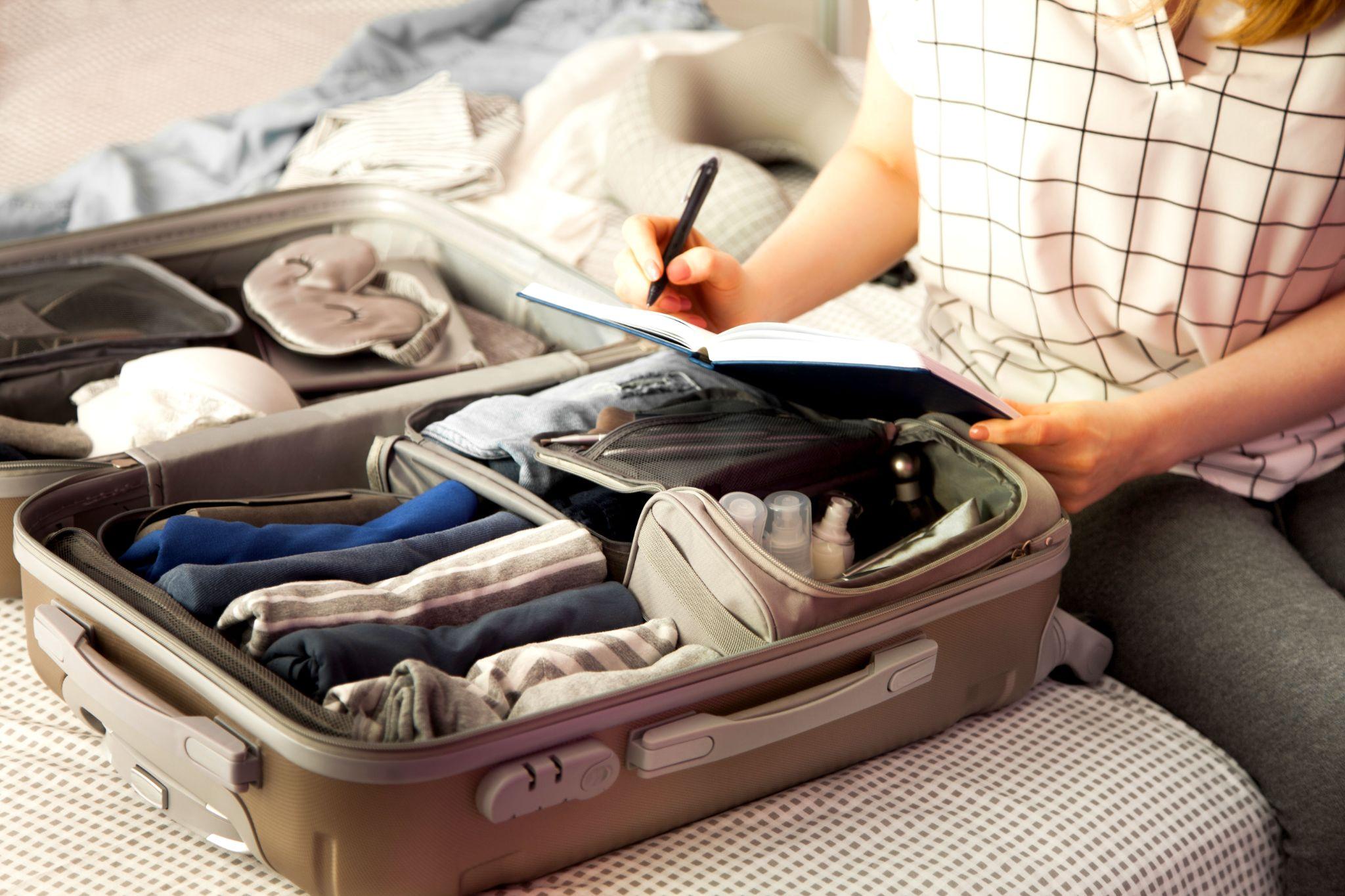Entering a rehabilitation center can be a pivotal moment in one’s journey toward recovery. Whether it’s you or a loved one making this brave step, preparing for the stay is crucial. Packing for rehab isn’t just about clothes. It’s about bringing parts of your life that will support your journey to recovery while leaving behind anything that could hinder your progress.
It’s essential to recognize that most rehab facilities have different policies. Before going to a treatment facility, you must pack wisely and ensure that you bring everything you need for a comfortable and focused recovery process.
What to Bring to Rehab
Essential Documents and Items
- Identification and Legal Documents: A valid government-issued ID (such as a driver’s license or passport) and any legal documents that might be needed during your stay (e.g., court documents, divorce papers).
- Insurance Information: Your health insurance card, policy details, and any necessary preauthorization forms or phone numbers for your insurance provider.
- Medical Records and Care Team Information: Bring any relevant medical records as well as contact information for your doctors and care team in case the rehab facility needs further information about your health.
- Small Amount of Cash and Cards: Bring some cash for minor purchases or vending machines within the facility. Having your debit card or credit card can also be useful for any unexpected needs that may arise during your stay. Ensure these are kept securely and are used responsibly, in accordance with facility guidelines.
Clothing and Personal Items
- A Week’s Worth of Clothing: Include comfortable and season-appropriate clothing items. Pack items to wear every day like T-shirts, pants, underwear, socks, pajamas, sneakers, flip flops, and a sweater or jacket.
- Exercise Outfits: Since physical activity can be part of the recovery process, bring workout clothes and appropriate shoes for indoor or outdoor activities.
Personal Care Items
- Toiletries: Toothbrush, toothpaste, shampoo, conditioner, body wash, face wash, shaving supplies, and feminine hygiene products. All items should be alcohol-free and non-aerosol.
- Non-Prescription and Prescription Medications: Sealed over-the-counter medications like pain relievers, allergy medication, or vitamins, can be brought provided they are approved by the rehab center. Remember to bring a list of medications prescribed by your doctor that you are currently taking and a supply of prescribed medications in their original bottles with labels.
- Glasses, Contacts, and Dental Devices: If you wear glasses or contacts, bring them along with the cleaning solution and cases. Don’t forget any dental devices you might need, like retainers.
Comfort Items
- Photos of Loved Ones: Pictures can be a source of comfort and motivation during your stay.
- Personal Bedding: A favorite pillow or a small blanket can make your room feel more like home.
- Relaxation Tools: Stress balls, fidget spinners, appropriate reading materials, or small handheld puzzles can be helpful for managing anxiety or stress.
Electronics (Unique to Lumina Recovery)
- Charging Cables: Don’t forget chargers for your devices. Consider a power strip if you have multiple devices.
- Headphones or Earbuds: For private listening during personal time, whether it’s music, podcasts, or guided meditations.
Writing and Art Supplies
- Journal and Pens: Keeping a journal can be a therapeutic activity during rehab. It allows for reflection and expressing thoughts or feelings.
- Sketchbook and Pencils: For those who find solace in drawing or painting, bringing a sketchbook and art supplies can be beneficial.
What Not to Bring to Rehab
Prohibited Substances and Items
- Drugs and Alcohol: This includes any non-prescribed medications, illicit drugs, alcohol, and items containing alcohol as an ingredient (e.g., certain mouthwashes and sanitizers).
- Weapons: Any form of weapon, including knives, firearms, and items that could be construed as weapons, are strictly forbidden.
- Tobacco Products: Some facilities prohibit all forms of tobacco, including cigarettes, cigars, chewing tobacco, and e-cigarettes.
- Cameras and Recording Devices: Privacy concerns mean these items are generally not allowed within rehab facilities.
Personal Care Items With Alcohol
- Nail Polish and Remover: These items contain chemicals and fumes that could be misused or trigger cravings in others during addiction treatment.
- Perfumes and Colognes: Besides containing alcohol, strong scents can be disruptive or cause reactions in other residents.
Entertainment and Reading Material
- Books or Magazines With Triggering Content: Literature that contains themes of substance abuse, violence, or adult content can hinder the recovery process for you or others.
- Playing Cards and Games That Encourage Gambling: To avoid fostering any potential for addictive behaviors, it’s best to leave gambling-related entertainment at home.
Clothing and Accessories
- Inappropriate or Revealing Clothing: Clothes that are overly revealing or have potentially triggering content, including logos or messages related to drugs, alcohol, or violence, should be left at home. You can check if your treatment center has a dress code.
- Expensive Jewelry and Accessories: To avoid loss or theft, it’s best to leave valuable items at home. Rehab centers are not responsible for personal valuables.
- Large Amounts of Personal Items: Space in rehab centers can be limited. Bringing too many personal items can clutter your space and distract from the recovery process.

Tips for Packing for Rehab
Packing for a stay in rehab is about balancing the need for comfort and simplicity while adhering to the facility’s guidelines. These tips will help ensure you’re well-prepared for your journey to recovery.
1. Check the Facility’s Guidelines
Read the provided materials. Facilities like Lumina Recovery often provide a packing list or guidelines. Review these carefully to understand what is encouraged and what is prohibited.
Ask questions. If you’re unsure about an item, don’t hesitate to contact the facility beforehand. This can save you the trouble of bringing something that you’ll have to send back home.
2. Pack for Comfort and Healing
Focus on essentials. Bring items that contribute to your comfort and well-being. This includes comfortable clothing, personal care items, and a few personal mementos to make your space feel more personal and comforting.
Consider emotional support items. A journal, favorite books, or even stress-relief items like a stress ball can be invaluable. These small comforts can make a big difference in your day-to-day experience.
3. Label Your Belongings
Use name tags or permanent markers. Mark all your belongings with your name. This includes clothing, electronics, and personal items. It helps in keeping your things organized and prevents them from getting lost or mixed up with others.
4. Pack Mindfully for Space
Remember space limitations. Rooms in rehab facilities can be small, with limited storage space. Pack compactly, bringing only what you truly need and can easily store.
Organize your items. Use packing cubes or bags to organize your items within your suitcase. This not only saves space but also makes it easier to find what you need.
5. Respect Privacy and Community Living
Consider shared spaces. When packing personal items like toiletries or electronics, remember you’ll be living in a community setting. Use headphones for personal listening and bring toiletries in sizes that are practical for single-room living.
6. Documentation and Identification
Keep important documents handy. Have all necessary paperwork, including identification, insurance information, and medical records, easily accessible. You may need these documents upon admission and for any medical consultations during your stay.
Learn More About What to Bring to Rehab With Lumina Recovery
Embarking on the path to recovery is a significant step. What you bring along should ease this transition, not complicate it.
Lumina Recovery has residential inpatient programs and sober living facilities where guidelines are provided to help you pack for your stay. Remember, we are here to support you every step of the way, offering a unique approach that includes staying connected to those who matter most.
Call us today to learn more about our programs and what is and isn’t allowed at our facilities.



